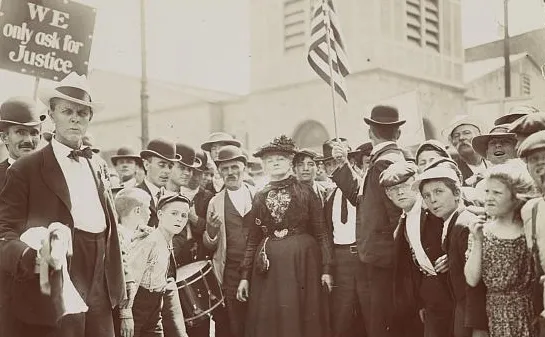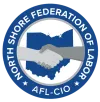Honoring Trailblazing Women in the Labor Movement

As we celebrate Women’s History Month, we recognize the powerful women who shaped the labor movement and fought for the rights and dignity of working people. From organizing strikes to crafting historic labor policies, these women stood at the forefront of progress. Their legacies continue to inspire our work today.
Dolores Huerta (b. 1930)
A fearless labor leader and civil rights activist, Dolores Huerta co-founded the United Farm Workers (UFW) alongside César Chávez. She organized farmworkers, led strikes, and fought for better wages and working conditions. Her rallying cry, “Sí, se puede” (Yes, we can), became a symbol of empowerment and perseverance. Today, her advocacy for workers' rights, immigrants, and women’s equality remains a guiding force in the labor movement.
Frances Perkins (1880–1965)
As the first woman to serve in a U.S. Cabinet position, Frances Perkins was a key architect of the New Deal as Secretary of Labor under President Franklin D. Roosevelt. She championed Social Security, the minimum wage, unemployment insurance, and workplace safety laws. Her dedication to improving the lives of working families set the foundation for many of the labor protections we rely on today.
Mother Jones (1837–1930)
Mary Harris “Mother” Jones was a fearless labor organizer known for her fiery speeches and relentless activism. She fought for coal miners, textile workers, and child labor laws, often traveling from strike to strike to rally workers. Called the "most dangerous woman in America" by industry bosses, she refused to back down in the face of repression, famously declaring, "Pray for the dead and fight like hell for the living."
Addie Wyatt (1924–2012)
A pioneering Black labor leader, Addie Wyatt rose from working in a Chicago meatpacking plant to becoming an influential union organizer and civil rights activist. She was the first woman elected vice president of the Amalgamated Meat Cutters Union and played a key role in advocating for racial and gender equality in the labor movement. Her work bridged the fight for workers’ rights with the broader struggle for social justice.
Mary Anderson (1872–1964)
Mary Anderson was a champion for women in the workplace, serving as the first director of the Women’s Bureau of the U.S. Department of Labor. She fought for laws that improved working conditions for women and advocated for equal pay, maternity protections, and reduced working hours. Thanks to her leadership, women’s rights became a central focus of labor policy in the early 20th century.
Rose Schneiderman (1882–1972)
A fiery labor organizer and suffragist, Rose Schneiderman was a leading voice for garment workers, helping to organize the Women’s Trade Union League (WTUL). She was instrumental in pushing for labor laws following the tragic Triangle Shirtwaist Factory fire of 1911. Her famous declaration, "The worker must have bread, but she must have roses, too," called for both fair wages and dignity in work, a sentiment that continues to resonate today.
Clara Lemlich (1886–1982)
Clara Lemlich was a garment worker and organizer who led the 1909 Uprising of the 20,000, a massive strike of young women demanding better wages and working conditions in New York’s garment industry. Despite employer violence and blacklisting, she remained steadfast in her activism, later advocating for tenants’ rights and consumer protections. Her courage helped pave the way for labor reforms that improved the lives of countless workers.
Their Legacy Lives On
The labor movement has always been shaped by strong, determined women who refused to accept injustice. The struggles these women faced and the victories they achieved remind us that progress is never given—it is won through organizing, solidarity, and action.
This Women’s History Month, we honor their contributions and recommit ourselves to continuing the fight for workers’ rights, equality, and justice for all.
